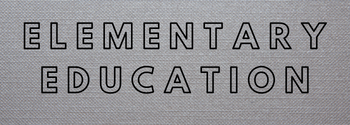My Experience Of Stereotyping Against Asian Students
When I started Queenstown Elementary School as a new student, I found myself in a “Learning Centre” program that was specifically designed to help children who were having difficulty speaking English. It was confusing to me as a New Zealander who spoke English as a first language. Although I was confused I attended the centre to learn to read books and spell words I could not read. Later in life, I realized that this was a mistake. I was thrown into the program because I was different. I was of Asian descent. I was an Asian girl who was shy. The teachers thought that because I wasn’t confident in English, I couldn’t speak it.
The word “diversity”, which we use proudly at school, is often used to exclaim the diversity of our students. But casual racism against Asians is very common. It’s not noticed because the people making it are well-meaning. When I was a kid, I did not understand what race meant. As a child, I didn’t understand race. The majority of Asian New Zealanders will be shocked to discover that we’re not all white. First, you realize that the parents of your friend are not like yours. Your parents may have a distinct accent, or they might put different food in your bag for lunch. You may notice that someone is speaking slowly and not just because they want to be clear, but also because they don’t think you understand English. You realize that your height, eyes, nose, skin and other facial characteristics don’t match those of your friend. My teacher still calls me Amy in year 2. It was Army. I corrected them, and she replied that this is not the normal way to pronounce it. “I felt that I was being accused of having a Kiwi-sounding name and asked my parents to change it. In year 4, I wanted to be blonde and blue-eyed like my friends. People who were ignorant enough to not realise how hurtful it was to make degrading Asian jokes to me, would turn their heads to mock my appearance. After a few too many “ew, you eat this” and judgmental glances, I convinced my mother to bring me vegemite & cheese sandwiches. It became common to use the phrase “You are Asian” as a way of justifying my Asianness. This was an expression I didn’t know if I liked or understood. What is this phrase? I would like to know what the criteria are for determining a person’s “Asian-ness”. It was only after hearing this stereotype so often that I became afraid of being ‘too Asian.’ After I became ashamed of my race, I avoided speaking Japanese to my non Japanese peers. My parents would keep quiet to try to make me appear less foreign.
In the ninth grade, I had a Chinese instructor who spoke stuttering English. In my maths class, the students laughed at her accent and mocked what she was saying. She was twice as literate as the person making racist remarks. Please excuse her for not being able to speak perfectly in her second language. The majority of non-native English speaker will have a strong accent, and that is perfectly acceptable. It is not acceptable to belittle someone for their inability to speak in a foreign language. They are not stupid or uneducated because they have an accent. The people are hard workers who have achieved a great deal by moving from one continent to another, enduring culture shift, learning a second language and managing to survive in this strange new world. Unsuccessful? A loser? Consider yourself. You’re condescending a teacher, who has suffered so much. And yet you refuse to recognize that she is trying. I would call these people pathetic. I find it offensive to see people belittle those who don’t know how to speak English well. This is how I feel when my mother is treated in this manner. I realised that the instigators, not my mother or my maths teacher, should be ashamed. You’re the one who is failing because you can’t make it clear that my mum, your teacher and your international friends are mocked every day for “not sounding like us”. You’re a loser if you think a person is suffering because of an accent that you can’t understand. You are also pathetic because you’re the heartless, ignorant person that you are.
A friend asked me in year 11 about my “Asian-ness”. She asked me why I didn’t speak Japanese to her. Her discrimination was unexpected for me, as I am a Kiwi Asian and grew up ashamed of my culture because of what happened to me when I first arrived in New Zealand. It made it seem unreasonable to me to tell the woman what I thought. I didn’t think I could have said anything to her face to face. I believed. . . pardon? Why would I want to speak Japanese with you when you can’t even understand Japanese? Now that people mocked my cultural heritage, you want me embrace it? What are you asking me to do? Why am I feeling like I need to please You? Please stop judging me and let me just be. Stop policing the kiwi Asians who are of Asian descent. It is not fair to judge anyone who does not speak the language of their country or engage with their culture. We have all spent a large part of our lives forced to assimilate in order to fit into western society. Each person’s journey towards connecting to their roots will be different. It is not appropriate to judge others or tell them how to live. Please, with all the kindness I can muster up, mind your business and stop talking. My teacher asked me if I would be attending Otago University in year 12. I said, “no. I want to be an architect.” “My teacher replied that she was confused. “Oh, I believed you wanted to be a physician.” Is my Asianness a factor in me pursuing medicine as a profession? Because if you are assuming that all Asians LOVE science and would just LOVE to become a doctor one day, then you have some serious stereotypic-perception on Asian students that really needs to be reviewed.
No longer am I ashamed of being Asian. I am sick of people assuming that I only have intelligence because I am Asian. My ethnicity makes my achievements less important. My work at Wakatipu High School is no different than that of my peers, and I don’t think anyone should be entitled to claim my achievements in academics are worth less because they believe my race to be “smarter”. This prejudice is probably one of lesser evils. It is not gang or police violence. We’re not stopped when we buy alcohol because we are too young. My ethnicity is subject to many positive stereotypes, such as the stereotype of the model minority: “whose members achieve a greater degree of socioeconomic achievement than the average population”. Although it may be an honor to have these positive stereotypes attached to your ethnicity, they can also degrade the intelligence of Asians and take away their individuality. One of Asian stereotypes that is most harmful to them is the expectation of academic excellence.
Asians are often viewed as intelligent people, which isn’t offensive to anyone. This stereotype is the one that has made me feel most vulnerable. First, I would like debunk that stereotype “every Asian is intelligent” because it does not apply to every Asian. Yes, 82. In 2017, 3% of Asian students in New Zealand’s secondary schools passed the NCEA Level 3 exam, which is higher than any other major ethnic group. Some people are unaware of this because they are so accustomed to the Asian stereotypes in Kiwi culture. This “Asian-is smart” stereotype is often seen as an honorable thing by people of all backgrounds – including Asians – and it’s disguised in a kind compliment. It doesn’t make me feel good when people say that my academic abilities can be attributed to the fact that I am Japanese. You’re insulting me by judging my intellect based on the fact that I am Asian. I feel the society stereotype that “Asians have a high IQ” has been translated to “Asians do well because they’re Asian”. You will say “Asians really are smart”, or in most cases, “she must be Asian” when an Asian student achieves excellence. It is not difficult to understand that the intelligence and achievements of an Asian student are attributed solely to their race. Why shouldn’t our race be praised for not being called dumb? It’s like, people actually think that we’re clever for God’s sake. Can it get worse? It can get worse, despite the fact that it may seem trite. As a result, it is not necessary to demonstrate to others that many Asians are academically gifted. This makes me doubt my identity. Then, if I am credited with all of my achievements and my race is credited for them, what do I have left as a person? What will my ethnicity have to do with the awards and grades I receive? What if, despite my best efforts, I fail to meet the expectations set by public schools? Am I no longer authentically Asian then?
As well as other Asians in New Zealand I felt that we had been pushed into a stereotype. It’s easy for me to ignore your assumption that society believes I’m intelligent, but I feel disappointed to hear that you think I’m only smart because I’m Asian. You can’t just attribute intelligence to race. It is a part of who a person is. This becomes a form of insult.



